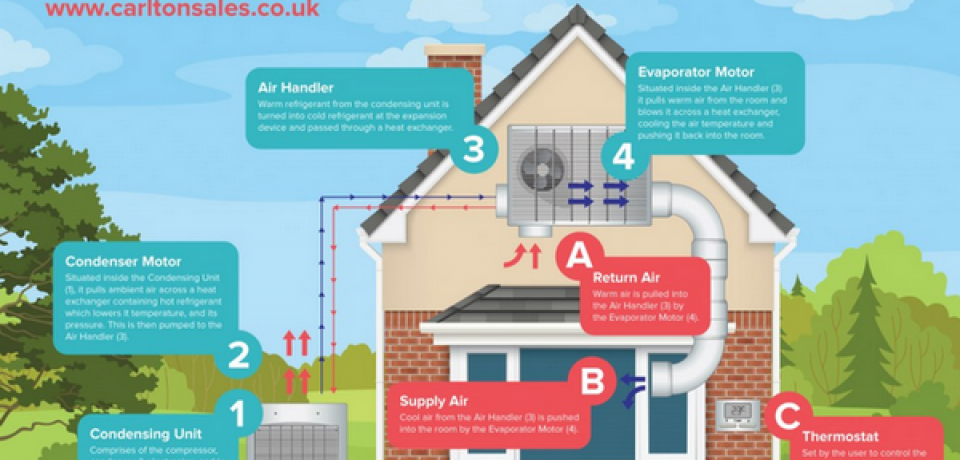Exploring The Environmental Advantages Of Warm Pumps - A Sustainable Heating Service
Exploring The Environmental Advantages Of Warm Pumps - A Sustainable Heating Service
Blog Article
Web Content Create By-Dickinson Smed
In a period where sustainability and energy efficiency are paramount, lots of companies seek green heating solutions. One such service is the heat pump.
A heat pump removes the warmth in its environments and pumps it right into your home, leading to among one of the most reliable green central heating unit around. This process likewise produces zero greenhouse gas discharges, making it a very lasting modern technology.
Power Efficiency
Heatpump are really power effective and need little upkeep. They utilize less electricity than other heating unit and are without a doubt one of the most environmentally friendly. They function well with rooftop solar and can typically pay for themselves in energy savings alone.
Recommended Looking at can additionally give air conditioning, which is great for garage workshops, attic hangouts and incentive areas, and home additions without extending the existing ductwork. They can even be made use of for retrofits in existing homes with hydronic (water-based) circulation systems such as low temperature radiators or glowing floorings.
Look for versions with SEER and HSPF rankings that meet or exceed Canada's minimum criteria, in addition to the standards in your region. Greater scores mean better performance, which conserves you cash over time and lowers your carbon impact. You might even receive refunds and incentives! The best systems are those with a ground heat exchanger for included efficiency. These systems can soak up thermal power from the ground throughout the wintertime and remove it in the summer.
Reduced Greenhouse Gas Emissions
Heat pumps run on electrical power and essentially transfer warm from the air, also when it's cool exterior. They are able to extract the free heat entraped in air fragments and move them inside, lowering humidity while doing so.
Compared to gas heating systems, contemporary heat pumps utilize less than one kilowatt of electrical power per kilowatt of heating power they generate. This makes them the most power effective heating option available with a COP (Coefficient of Efficiency) of 4 or more. By lowering the requirement for nonrenewable fuel sources, heatpump help in reducing greenhouse gas discharges and reduce other major air pollutants.
Structure decarbonization is a worldwide important, and the HVAC market is a key chauffeur of that procedure. Whether it's investor making internet no dedications, policy makers setting emissions limits, or renters requiring greener areas, electric heatpump are being identified as a vital remedy. They are an economical way to reduce carbon emissions by removing the need for nonrenewable fuel sources in buildings.
Adaptability
Heat pumps can be made use of in several kinds of homes and buildings-- with or without ducts. https://www.treehugger.com/tips-getting-more-out-your-air-conditioner-4858100 work with hot-water radiators, air-conditioning and programmable thermostats. They can replace heaters or be installed in new houses. They can operate on photovoltaic panels, geothermal systems or perhaps district home heating resources like wastewater.
They're wonderful at providing more warmth per energy device. As an example, an air-source heatpump creates up to 3 or more heating devices from each power device it consumes.
Obtaining the most from your heat pump will certainly rely on your environment area and high quality of insulation. Seek designs with ENERGY STAR rankings and contrast their SEER or HSPF specs. In warmer environments, focus on SEER; in cooler regions, consider a system with a higher HSPF rating. On top of that, purchase air sealing and insulation to minimize the load on your heatpump. That will certainly boost power performance and help you reach your Net No goals much faster.
Biomass Boilers
Biomass boilers utilize wood pellets, chips or logs to develop warmth and warm water. They are a good option for off-grid buildings or those that want to get off the gas grid.
As a standalone heater, biomass can provide sufficient energy to maintain your home cozy all year round without the regular warm drop off of other renewable innovations. They can additionally be utilized in conjunction with photovoltaic panels to increase financial savings and gain from RHI payments.
A disadvantage of these systems is the ahead of time expense and regular fuel shipments. Commonly, pellets will need to be blown right into a gas store utilizing a vacuum system or they can be manually fed into the central heating boiler with a hopper. Logs are usually self-sourced from nearby woodland or acquired wholesale. Along with this, they need hand-operated loading and may need cleansing regularly.